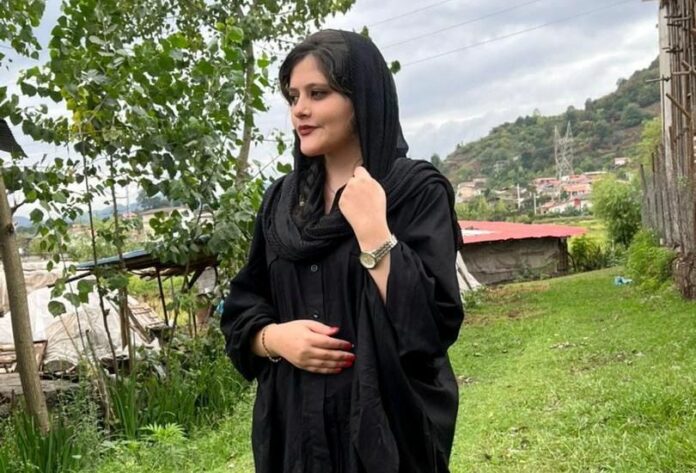Following the 12 August attack on renowned author Salman Rushdie, I penned an article about the clash of worldviews – the dissonance between those who embrace Western values of free expression and those whose religious sensibilities drive them to violence over a perceived insult.
The worldview clash is not confined to the literary world. Indeed, this is the same clash we see played out annually in Jerusalem, particularly on the Temple Mount, and often with grave consequences. 2022 was no exception.
A similar clash has been evidenced in Iran the past month. A 22 year old Kurdish woman, Mahsa Amini, holidaying with her family in Tehran, was arrested by the “morality police” for wearing her hijab incorrectly. She collapsed after being taken to a detention centre to be “educated”, with reports that officers beat Ms Amini’s head with a baton and hit her head against a vehicle.

Protesters took to the streets across 31 Iranian provinces, in other countries. There have been small, but growing, protests in New Zealand. Iranian state TV claims 41 demonstrators have died since protests began on 17 September, but Norway-based group Iran Human Rights estimates the figure to be around 133.
Iran’s theocratic leaders are of course ideologically driven and have shown little regard for the will of the people. This should be borne in mind as the Biden administration seeks to revive the nuclear deal with Iran. As WSJ writers, Reuel Marc Gerecht and Ray Takeyh have stated:
The Western approach to Iran is predicated on the assumption that the other side is pragmatic and can shelve ideological impulses for the sake of an agreement, and that the Iranian government is a responsible stakeholder and can be trusted with residual nuclear assets. Such assumptions have always been wrong.
MARITIME PROPOSAL
One’s worldview may influence how one views the current negotiations over the US Maritime Proposal for Israel and Lebanon. Reactions have been mixed. Those in favour view the proposal as safeguarding Israel’s full security-diplomatic interests, as well as economic interests. According to Yoav Limor, ‘We should not underestimate the importance of an agreement, even if partial, with an enemy state. The ability to generate and implement common interests is a calming and restraining element’.
However, others have come out strongly opposed to the proposal.
Prof. Eugene Kontorovich states:
The proposed deal would give the Iranian puppet-state in Lebanon hundreds of miles of territory in the Mediterranean Sea – and the vast reserves of natural gas underneath. In the final U.S. proposal, the recipe for compromise is simple: Israel accepts all of Lebanon’s territorial claims and redraws its borders. The standard principle in maritime mediation is equitable division somewhere down the middle. But the deal reportedly requires Jerusalem to meet Beirut’s claims in full.
In spite of these challenges, there is much to be optimistic about in the wider Middle East as a result of the Abraham Accords. On the second anniversary of the Abraham Accords establishing relations between the UAE and Israel, the feeling is palpable that the two countries have so far “just scratched the surface.” We look forward to seeing the normalisation of relationships spread further.



